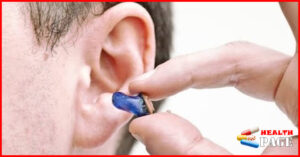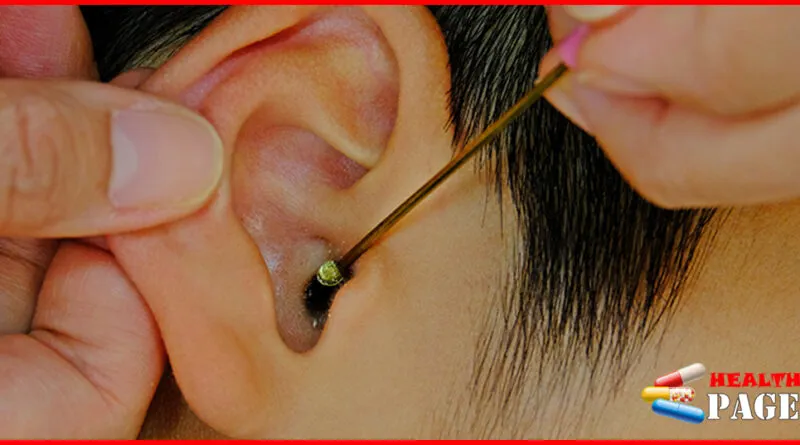Earwax is not just ordinary “shit”. What risks are hidden in the ear cleaning
It is said that there are three ways that can make people feel as happy, scrubbing the body, massaging the feet, and cleaning the ears. Among them, ear cleaning is also called “ear picking”. Many health clubs now offer this project. Ear pickers use tools (such as goose feather sticks, horsetails, etc.) to remove earwax in the external auditory canal and stimulate the inside and outside of the ear canal, making people enjoy and relax, so they call it “a little comfort in the world” .
Some health clubs even promote ear cleaning as a type of medical care project, claiming that it can improve tinnitus, dizziness, and enhance memory.
Is ear cleaning really that magical? Is it necessary? Are there any disadvantages?
01 The “little knowledge” of earwax
What is earwax?
Earwax, also known as cerumen, is a medical term for the secretions of the sebaceous glands and cerumen glands on the skin of the cartilaginous part of the external auditory canal, mixed with shed skin from the external auditory canal, bacteria from the normal skin flora, shed hair, and water stains that enter the ear canal.
Most earwax is light yellow, slightly sticky, and flaky after drying. Some earwax is thicker, commonly known as “oily ear”. In terms of properties, all of them are normal.
Earwax also has benefits
From the name, although earwax is also “shit”, it is really not ordinary “shit”. Different from other metabolic excretions, the existence of earwax has certain benefits to the human body:
- Earwax is rich in fatty acids, which form a weakly acidic film on the surface of the ear canal skin and have a certain effect of resisting bacteria and viruses.
- The cerumen glands can moisturize the hairs on the skin of the external auditory canal. These hairs and sticky earwax can block dust particles from entering from the outside, and also protect small insects from entering the external auditory canal. When water accidentally enters the ear, earwax can also block the invasion of dirty water and prevent the occurrence of infectious diseases (such as external otitis);
- Normal earwax can filter and buffer incoming sounds, preventing the eardrum from being injured by strong sounds. It keeps the external auditory canal at a certain temperature and humidity to protect the eardrum.
Usually when we chew, open our mouths, etc., earwax will be discharge by itself. Therefore, there is no need to frequently or regularly pick ears (clean earwax) in life.
02 The “big risks” behind ear cleaning
When there is too much earwax, it will itch and people will try to pick it out. However, doctors do not recommend it whether you pick your ears yourself or go to a health club for ear cleaning.
In addition to the fact that there is no professional qualification certification for the position of “ear picker”, the act of ear cleaning itself may also have the following risks:
Incomplete disinfection of tools can easily cause cross infection
Ear-picking tools cannot be sterilize at high temperatures like professional tools used in hospitals. So it is easy to bring fungi or mold into the ear canal. If mold grows on the eardrum, it can also cause hearing loss and tinnitus.
In the outpatient clinic, we often encounter patients with recurrent ear stuffiness or itching. Many of them have a history of ear cleaning, and most of the examinations show fungal infection of the external auditory canal. There is an inappropriate but vivid metaphor for this – it is like “athlete’s foot growing in the ear.”
Fungal infection of the external auditory canal under otoscope (earwax and flocculent fungal infection can be see)

Damage to the external ear canal or eardrum
Improper operation can easily damage the external auditory canal or eardrum, causing external auditory canal infection, furuncle (skin abscess involving hair follicles) or eardrum perforation, causing ear pain and, in severe cases, hearing loss.
Irritation of the skin of the external auditory canal
Repeated ear picking can easily irritate the skin of the external auditory canal, causing swelling of the stratum corneum or long-term chronic congestion, which is more conducive to bacterial growth.
The risk of ear cleaning outside is not low, so why are so many people still keen on the “ear cleaning” service?
In fact, many people go for ear cleaning not just to clean their ears, but more to enjoy the tingling and ecstatic feeling.
This is because the ear canal is rich in nerve endings, which, when stimulated, make us feel comfortable and relaxed.
03 Tips for protecting your ears
- Get rid of the habit of picking your ears;
- Avoid long-term exposure to noisy places;
- Don’t pour water into your ears or “clean your ears” when washing your hair or taking a shower;
- When blowing your nose, you should blow your left and right nostrils one by one, and never close your nose and blow your nose at the same time. This is because the nasopharynx at the back of the nasal cavity is connected to the middle ear cavity through a tube. Blowing your nose at the same time may cause nasal secretions to be driven into the middle ear cavity, causing otitis media.
- Do not try the so-called “professional ear cleaning”. If you experience ear stuffiness, ear pain, repeated ear itching, etc. after ear cleaning in the streets, you need to seek medical attention immediately.
Tips for dealing with oily ears
For home care, you can use a sterilized cotton swab (do not use sharp objects such as nails or iron sticks) to gently wipe the opening of the external auditory canal (if there is a lot of oily secretions, you can use a cotton swab dipped in medical alcohol). Then turn your ear down, and the earwax will generally come out by itself. Do not put the entire cotton swab head into the ear canal. Generally, it can be do once a week, and not too frequently.
04 Pay attention to the “signals” sent by your ears
If you suddenly experience hearing loss, or are accompanied by varying degrees of stuffiness or swelling in the ears. Even accompanying symptoms such as tinnitus and dizziness, you should go to the hospital for treatment immediately.
When water enters the ear, especially after swimming or bathing. You feel pain, itching or stuffiness in the external auditory canal, you should consult an ear specialist. Never dig randomly to avoid causing ear canal inflammation.
To sum up, if the following situations occur, please see a doctor in time and let a specialist treat it:
- The ears feel blocked;
- Itching or pain in the ear;
- Hearing loss;
- Discomfort after ear picking;
- Abnormal noise in the ears, tinnitus, etc.



Pingback: Bed sickness. Sexually transmitted diseases (STD) that are not talked about
Pingback: A brief discussion on the factors causing falls in the elderly and the strategies to prevent falls
Pingback: The Benefits of an Ear Wax Removal Kit
Pingback: What Side Should I Sleep On With a Ruptured Eardrum? Tips here